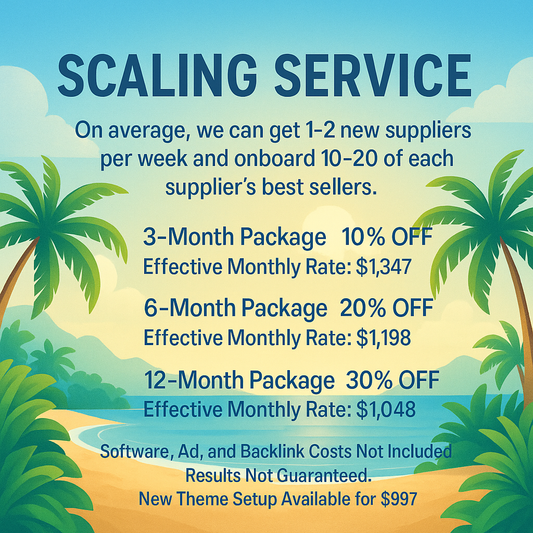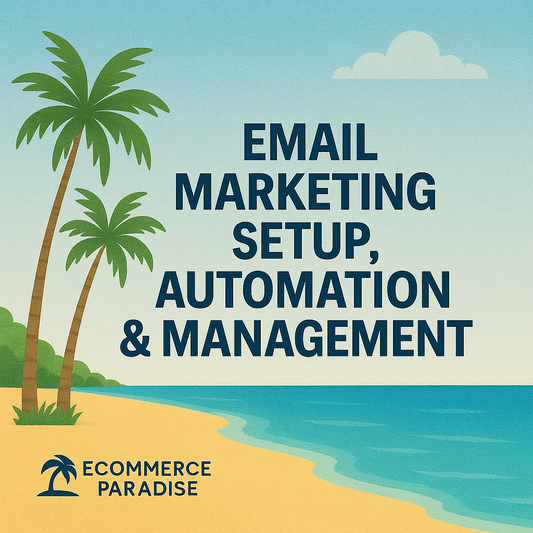
Zoho Review: Comprehensive Analysis of Features and Pricing
Zoho is a suite of online business tools designed to help companies handle tasks like email, finances, customer management, and more, all in one place. It offers a wide range of features that can save organizations time and help them stay organized. Many businesses look to Zoho when they want a solution that is affordable and easy to use.
People often want to know if Zoho is worth using and how it compares to other options. This review answers those questions by looking closely at what Zoho offers, who it helps most, and what users should keep in mind before signing up.
Overview of Zoho

Zoho is a company that provides a wide range of cloud-based software tools for businesses. Its products cover areas like email, project management, finance, sales, marketing, and customer support.
What Is Zoho
Zoho is an Indian technology company that started in 1996. It focuses on developing web-based business software for small, medium, and large enterprises. Zoho operates in over 180 countries and has millions of users.
The company is private and independently owned. Zoho’s main feature is its all-in-one suite, letting teams use many business apps from one place. Security and privacy are important to Zoho, and it does not allow ads in its products.
Zoho offers free and paid plans, making it accessible for startups and growing businesses. Its software works in the cloud, so users can work from anywhere with an internet connection.
Zoho Offerings
Zoho has many different applications for business needs.
- Zoho CRM: helps teams track leads, manage customer relationships, and automate sales.
- Zoho Mail: is an ad-free, security-focused email service.
- Zoho Books: gives tools for accounting, invoicing, and finance tracking.
- Zoho Projects: supports task management and project tracking.
- Zoho Desk: is a customer support platform with automated ticketing.
Zoho also offers tools for HR management, document editing, marketing automation, analytics, and more. Many of these apps work together, creating a connected ecosystem. The Zoho One package bundles over 45 applications for one subscription price. Some tools can be purchased alone, while others come as part of bundled suites.
Zoho Pricing and Plans
Zoho offers a range of plans for its suite of business apps. Pricing differs depending on the number of users and the features included in each plan.
Subscription Tiers
Zoho provides several subscription options. The most common products, like Zoho CRM, Zoho Books, and Zoho Mail, each have distinct plans. For example, Zoho CRM usually has these tiers:
| Plan Name | Monthly (per user) | Key Features |
|---|---|---|
| Free | $0 | Basic CRM features |
| Standard | $14 | Sales forecasting, scoring |
| Professional | $23 | Inventory management, macros |
| Enterprise | $40 | Zia AI, advanced customization |
| Ultimate | $52 | Enhanced analytics, storage |
Not every Zoho product follows these prices, but most use a similar tiered approach. Discounts are often available for annual payments or larger teams. Some packages, like Zoho One, provide access to most apps for a bundled rate, starting around $37 per employee per month.
Value for Money
Zoho's plans include a wide range of tools for the listed prices. Features scale up with higher tiers, so small groups can start affordably and upgrade as needed. The Free Plan is good for very small teams, while paid tiers add advanced sales, reporting, and integration features.
Many users pick Zoho for its competitive pricing compared to alternatives like Salesforce and Microsoft 365. By packaging many business apps together, Zoho lets companies manage customer data, email, projects, and accounting under one system—often without higher add-on costs. This approach can cut software spending, especially for growing businesses.
Core Features and Functionality
Zoho offers tools for teamwork, sales management, and email to help businesses work better. Its apps are designed for both small teams and large companies.
Collaboration Tools
Zoho provides a suite of apps for teams to share files, send messages, and manage tasks. Zoho Projects lets users plan tasks, create deadlines, and monitor progress. Team members can see updates in real time, making it easy to track who is doing what.
Zoho Cliq works as a chat platform for groups and private messages. It supports channels for different departments or topics. File sharing and video calls are built in. Some plans provide task boards and calendars, so everything stays organized.
For document work, Zoho Writer, Sheet, and Show offer editing and sharing features. Multiple people can work together online at the same time. Changes are saved automatically, and version history lets users see who made edits.
CRM Capabilities
Zoho CRM helps sales teams track leads, contacts, deals, and follow-ups in one place. It lets users set up custom sales stages and automate daily tasks such as sending emails or updating records. Every call or meeting can be logged for easy access.
The CRM dashboard uses charts and tables to show sales progress. This gives a clear view of goals, conversion rates, and tasks. Built-in reports show where deals are stuck, helping teams focus on what needs attention.
Automation tools in Zoho CRM can send reminders, assign leads, and follow up with customers automatically. It also connects with email, calendar, and other Zoho apps, reducing the need for manual updates.
Zoho Mail
Zoho Mail is an ad-free email service designed for business use. It provides custom domain hosting, so companies can use their own branded email addresses. The interface is simple, with folders, labels, and advanced search features.
Zoho Mail supports calendar integration and shared inboxes for teams. This helps groups manage emails and schedules together. Users can set up filters to organize messages automatically.
Strong security features include spam filtering, two-factor authentication, and encryption. Email data stays protected, and admins control access for each user. Migration tools help companies move from other email providers with less downtime.
Zoho Mail as the Best Email Service for Business

Zoho Mail stands out for business use because of its strong focus on protecting user data and its tight links with other Zoho tools. Many businesses choose it for its features, security, and ability to work with teams.
Security and Reliability
Zoho Mail offers multiple layers of security for business email accounts. It uses end-to-end encryption, keeping email content safe from outsiders. Two-factor authentication adds another protection, which helps guard against unauthorized access. Regular anti-spam and anti-virus checks help filter out unwanted and harmful messages.
Zoho Mail's uptime is high, which means it's rarely down. The company promises a 99.9% uptime guarantee. This reliability is critical for companies that need constant access to their inbox. Data is backed up on secure servers, so there's less risk of losing important information.
Admins can easily set email policies and control who gets access to what. This helps organizations meet compliance needs and protect sensitive data.
Integration With Other Zoho Apps
Zoho Mail works smoothly with other Zoho business apps like Zoho CRM, Zoho Projects, and Zoho Docs. Users can access files, notes, and contacts directly from their email without switching between different apps. This saves time and helps teams work better together.
Shared calendars, task lists, and contact management are built in, making it easy to keep track of meetings and team projects. Teams can set up group emails and share messages or files inside Zoho Mail.
Zoho Mail also supports integration with other third-party tools through its app marketplace and APIs. This flexibility makes it a practical choice for many business needs.
User Experience and Interface
Zoho focuses on an easy-to-use design with simple menus and helpful features. The platform supports users with both guided steps and flexible layout options for different needs.
Onboarding Process
Zoho’s onboarding starts right after sign-up, with a simple dashboard that includes tooltips and clear instructions. First-time users are greeted with a setup wizard. This wizard helps them connect email accounts, add users, and set basic preferences. The process uses progress bars to show how much is left.
Zoho provides a short video tour and an FAQ section for those who want extra help. Common setup tasks are shown in a checklist, which users can mark as complete. If something is unclear, there is a chat support button in the corner of the screen. Most users can finish the main setup within about 15 minutes.
Customization Options
Zoho offers multiple customization tools for different business needs. The main dashboard lets users move or hide widgets. Most modules, like contacts and sales, can be renamed or reorganized.
There are drag-and-drop editors that let users build custom forms and reports. Zoho allows changes in color themes, logos, and email templates. Admins can manage user roles to control what features each team member sees. Users can set up automation rules by following step-by-step guides, which saves time on repeat tasks.
Below is a table highlighting key customization options:
| Feature | Editable? |
|---|---|
| Dashboard Widgets | Yes |
| Module Names | Yes |
| Colors & Logo | Yes |
| User Roles | Yes |
| Templates | Yes |
| Notifications | Yes |
Zoho Pros
Zoho offers tools for many types of businesses. Its main benefits are flexibility, affordability, and a wide range of features.
Strengths for Different Business Sizes
Zoho supports both small and large businesses with scalable plans. Small businesses can use Zoho’s low-cost or free plans to manage sales, projects, and customer support without a big budget.
As companies grow, they can upgrade to more advanced plans or add apps. This helps businesses avoid switching to a new vendor as their needs change. Zoho’s cloud-based tools make it easy for remote teams and multiple users to work together.
For enterprises, Zoho provides features like role-based access and strong security. Companies can also integrate Zoho with popular software such as Google Workspace, Microsoft 365, and Slack.
| Business Size | Key Features Offered |
|---|---|
| Small | Free plans, low-cost apps |
| Growing | Scalable pricing, add-ons |
| Enterprise | Advanced security, APIs |
Unique Advantages
Zoho has over 40 business apps that work together. This includes tools for CRM, accounting, HR, and marketing that users can link with one sign-in. Integrating systems saves time and reduces mistakes.
The customization options are strong. Users can set up workflows, dashboards, and reports for their unique needs. Zoho’s marketplace also offers third-party extensions for extra features.
Zoho’s pricing is straightforward. Most plans do not have hidden fees. The company also gives a long free trial and generous support through chat, email, and phone. Data privacy is a priority, as Zoho does not show ads or sell user data.
Zoho Cons
Zoho has strengths, but some users have concerns about its usability and features. Problems with customer support, integrations, and performance often come up in customer reviews.
Common Complaints
1. Customer Support Issues
Some users mention that Zoho’s customer service can be slow to respond. Support is mostly handled through email or online tickets, with phone help sometimes harder to reach. This can be frustrating for businesses that need quick answers.
2. Steep Learning Curve
Zoho offers a lot of features, but the user interface is not always easy to understand. New users may find it confusing and need extra time to learn the system.
3. Performance and Speed
Several users report that the software can slow down, especially when handling large amounts of data. Zoho’s web-based apps sometimes lag or time out, leading to workflow delays.
4. Mobile App Limitations
The mobile app does not always offer the same features as the desktop version. Some tasks cannot be done on mobile, making it less useful for people who work away from their desks.
Areas for Improvement
1. Integration with Other Tools
Zoho can integrate with many applications, but users report problems with certain third-party connectors. Integrations with popular tools like Slack and Trello are sometimes limited or require extra work.
2. Customization Limits
While Zoho lets users customize fields and workflows, there are restrictions. Some advanced customizations may require technical knowledge or even coding, which not all businesses have.
3. Pricing Structure
Zoho’s pricing can be confusing, with many different tiers and add-ons. Businesses may have to pay more to access the features they need across different Zoho apps.
4. Data Migration Difficulties
Moving existing data from other platforms into Zoho can be challenging. Users sometimes report that migration tools do not transfer all information smoothly, resulting in extra manual work after the switch.
Customer Support and Resources
Zoho offers different support options for users. It also provides a detailed knowledge base for those who want to find answers on their own.
Support Channels
Zoho provides several ways for customers to get help. Users can reach out by email, phone, or live chat. Support hours vary based on the chosen plan. Basic plans may only get weekday support, while premium plans offer 24/7 assistance.
There is a ticket system for tracking requests. This helps users follow up on issues. Enterprise customers have access to a dedicated account manager.
Response times are usually faster for paid plans. Free plan users may have to wait longer to get a reply. Zoho also offers support in multiple languages.
Support Options:
| Channel | Availability | Languages |
|---|---|---|
| Most plans | Multiple | |
| Phone | Premium/Enterprise | Multiple |
| Live Chat | Selected hours | English |
| Ticket System | All plans | Multiple |
Knowledge Base
Zoho’s knowledge base covers many topics. It includes guides, FAQ sections, and step-by-step articles. These are easy to search and read.
Articles are written in plain language with screenshots and clear steps. Users can learn how to set up features, fix errors, and use advanced tools. Some sections include video tutorials for better understanding.
There are community forums where users can post questions and get help from other customers. The knowledge base is updated when new features are released. This helps customers stay informed about software changes.
Zoho vs. Competitors
Zoho offers a wide range of business tools, making it a strong choice compared to several popular software options. Pricing, integrations, and ease of use can vary a lot between solutions, so picking the right platform depends on the company’s needs.
Comparison With Leading Alternatives
Companies often compare Zoho with competitors like Salesforce, Microsoft 365, and Google Workspace. Zoho offers a full suite of apps for sales, productivity, finance, and communication, many of which are included at no extra cost. In contrast, Salesforce is mainly focused on CRM and tends to cost more, with add-ons priced separately.
Here is a basic comparison:
| Feature | Zoho | Salesforce | Microsoft 365 | Google Workspace |
|---|---|---|---|---|
| CRM Included | Yes | Yes | Limited | Limited |
| Office Apps | Yes | No | Yes | Yes |
| Starting Price (USD) | $14/month | $25/month | $6/month | $6/month |
| Integration Options | Good | Excellent | Good | Good |
Zoho is known for built-in tools and lower costs. Salesforce is chosen by large enterprises looking for advanced CRM customization. Microsoft 365 and Google Workspace focus on email, documents, and collaboration, but their CRM features are weak.
When Zoho Is the Right Choice
Zoho fits small to mid-sized businesses that want many features bundled together. It works well for teams looking for CRM, project management, and finance tools in one platform. Zoho gives good value when a business wants to avoid buying separate software for every task.
Companies with limited budgets often find Zoho’s all-in-one subscriptions attractive. It makes sense for those needing basic to moderate customization, along with native integrations between sales, support, and office tools.
Larger businesses may prefer other providers if complex workflows or deep CRM customization is required. Zoho is best for growing teams that want to save money and keep their software setup simple.
Final Verdict on Zoho
Zoho offers a wide range of tools for businesses of all sizes. Users can pick from CRM, email, project management, and other apps to fit their needs. The platform focuses on affordability and flexibility.
Key Strengths:
- Many integrated apps
- Competitive pricing plans
- Cloud-based access
- Regular updates and new features
Considerations:
- Some users may face a learning curve with certain features
- Support can vary by plan
- Occasional interface changes may require adaptation
Zoho works well for teams that want many capabilities in one system. Startups and small companies may find it especially helpful due to the lower price points compared to some competitors.
Larger organizations can benefit from Zoho’s customization and automation features. However, they may need more time to set everything up and train staff.
The company’s privacy policy and data handling meet industry standards. Regular security updates help protect user data.
Table: Quick Pros and Cons
| Pros | Cons |
|---|---|
| Many features | Can be complex to learn |
| Affordable pricing | Support varies by plan |
| Cloud-based access | Interface changes |
| Frequent updates | Needs setup time for teams |















